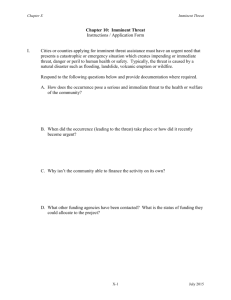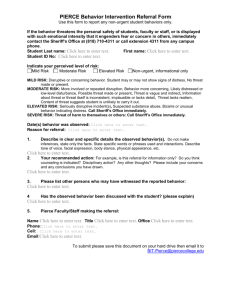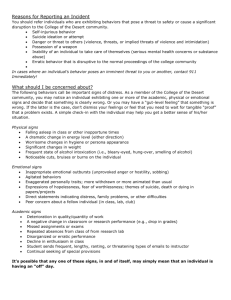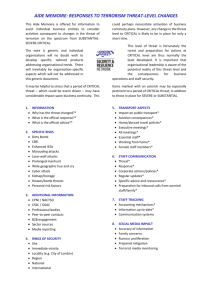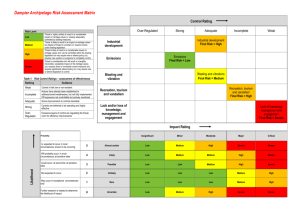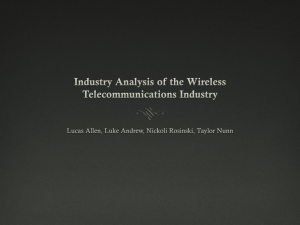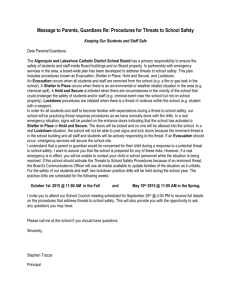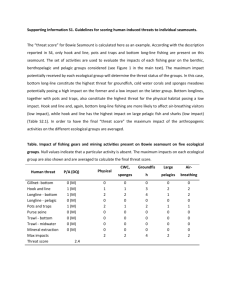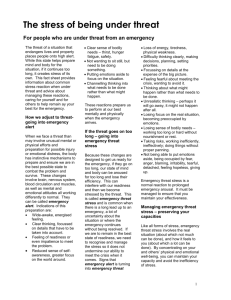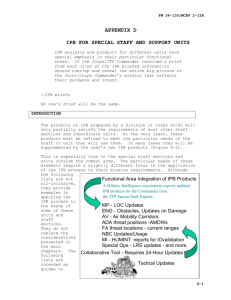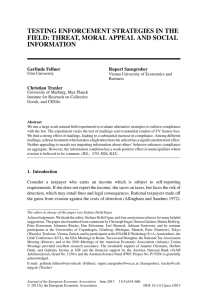2011 - More A Threat Than An Opportunity
advertisement
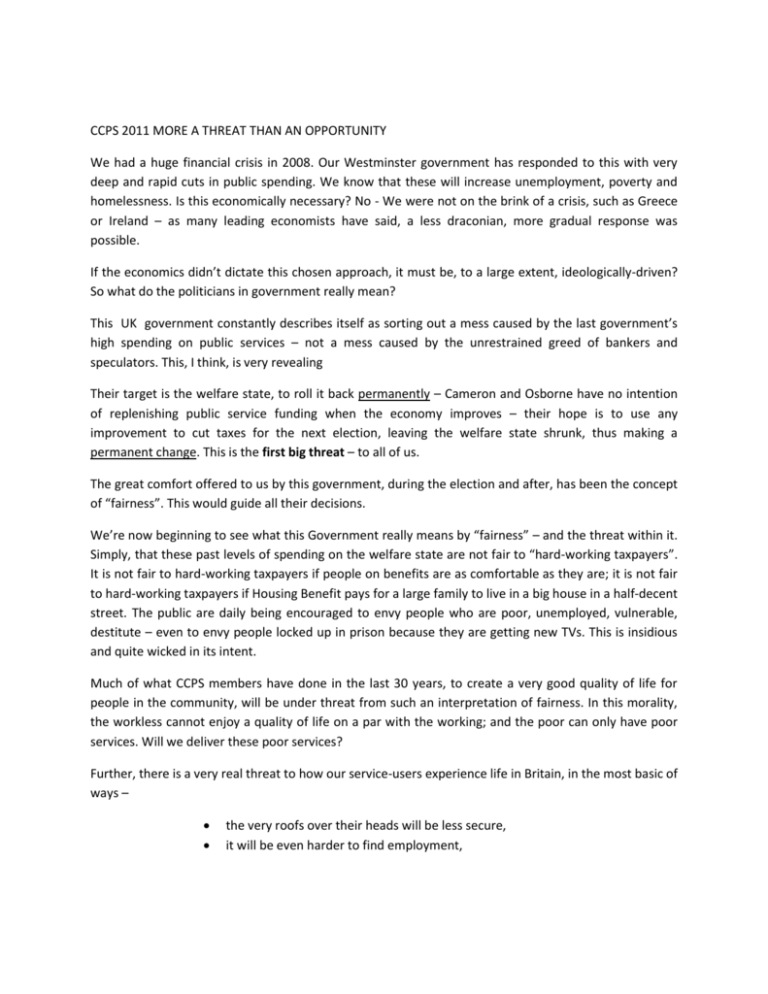
CCPS 2011 MORE A THREAT THAN AN OPPORTUNITY We had a huge financial crisis in 2008. Our Westminster government has responded to this with very deep and rapid cuts in public spending. We know that these will increase unemployment, poverty and homelessness. Is this economically necessary? No - We were not on the brink of a crisis, such as Greece or Ireland – as many leading economists have said, a less draconian, more gradual response was possible. If the economics didn’t dictate this chosen approach, it must be, to a large extent, ideologically-driven? So what do the politicians in government really mean? This UK government constantly describes itself as sorting out a mess caused by the last government’s high spending on public services – not a mess caused by the unrestrained greed of bankers and speculators. This, I think, is very revealing Their target is the welfare state, to roll it back permanently – Cameron and Osborne have no intention of replenishing public service funding when the economy improves – their hope is to use any improvement to cut taxes for the next election, leaving the welfare state shrunk, thus making a permanent change. This is the first big threat – to all of us. The great comfort offered to us by this government, during the election and after, has been the concept of “fairness”. This would guide all their decisions. We’re now beginning to see what this Government really means by “fairness” – and the threat within it. Simply, that these past levels of spending on the welfare state are not fair to “hard-working taxpayers”. It is not fair to hard-working taxpayers if people on benefits are as comfortable as they are; it is not fair to hard-working taxpayers if Housing Benefit pays for a large family to live in a big house in a half-decent street. The public are daily being encouraged to envy people who are poor, unemployed, vulnerable, destitute – even to envy people locked up in prison because they are getting new TVs. This is insidious and quite wicked in its intent. Much of what CCPS members have done in the last 30 years, to create a very good quality of life for people in the community, will be under threat from such an interpretation of fairness. In this morality, the workless cannot enjoy a quality of life on a par with the working; and the poor can only have poor services. Will we deliver these poor services? Further, there is a very real threat to how our service-users experience life in Britain, in the most basic of ways – the very roofs over their heads will be less secure, it will be even harder to find employment, the benefits system will be even more difficult to navigate, more harsh in its decisions, with even less money - £18bn -to be had at the end of it all and, for some, the threat of no money at all. The next threat is to you and your staff. The certainty - not a threat - of yet further erosion to our pay and conditions. Continuing high unemployment may make recruitment easy, but it also increases the downward pressure on the price that is paid for our work - its simple economics – there is surplus labour therefore the price of labour – wages - can go down. That’s 85% of our costs. And when the economy does pick up, and new jobs emerge in other sectors, social care will face a desperately serious recruitment crisis. The next threat is the Big Society – if it comes to anything at all, they don’t mean us! They don’t mean big, professionalised voluntary organisations with multi-million turnovers, highly-paid chief execs, hierarchies and bureaucracies – instead of getting a service from us, a neighbour will check twice a week that Mrs. Smith is not dead in return for 50 points on their Tesco Card. Finally [sixth] – More and more we will be sucked in to doing things that strain our values to breaking point. The psychological strain this creates is real, on organisations and the people working in them. We feel that strain and stress because we are moral beings – we all are – and we’ve created voluntary organisations to carry forward a moral purpose. So, in summary, the Scottish situation has been kicked into next year. But we’ve a UK government with a clear economic and political ideology – a moral purpose in their terms - deliberately driving a programme of permanent cuts to the funding and services that protect the weak against the strong, while at the same time deliberately increasing unemployment, homelessness, poverty and inequality. The voluntary sector, including CCPS members, has a purpose – a moral purpose - to fight against these evils, not to hope that their increase will bring more business opportunities our way.

